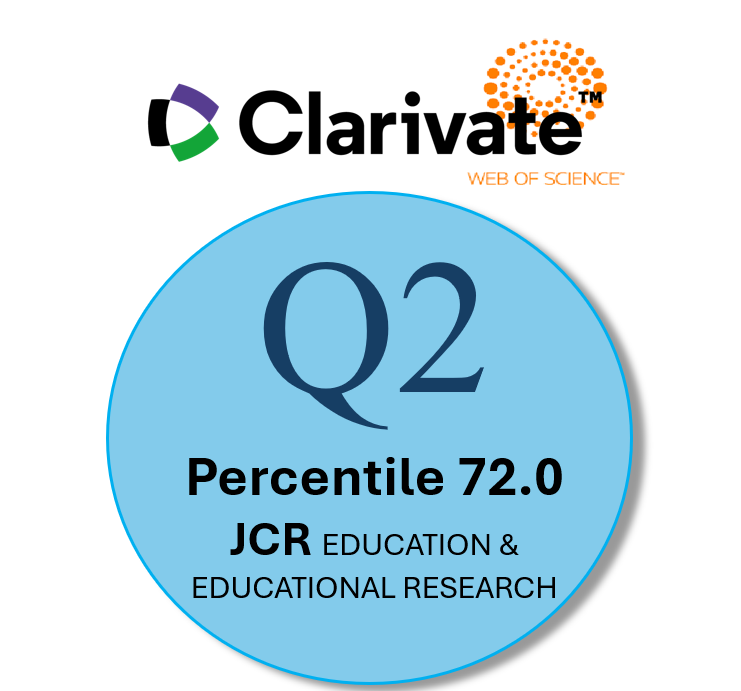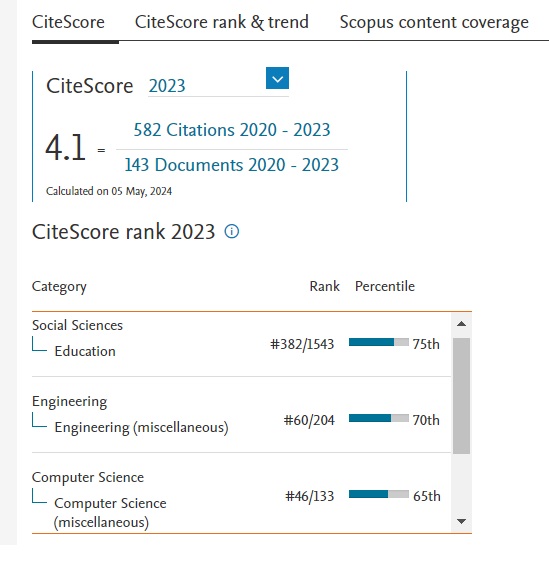OPERA-LEARNING: INTEGRACIÓN DE ESTÁNDARES DE DISTRIBUCIÓN DE CONTENIDOS MULTIMEDIA Y LEARNING OBJECTS
Resumen
En este trabajo se describe una primera aproximación a una integración entre documentos conformes a estándares de distribución de contenidos multimedia como MPEG-7, y otros recursos diseñados usando estándares de e-learning como LOM y, por extensión, SCORM. Como ejemplo, se presenta el proyecto Opera-Learning impulsado por el Gran Teatre del Liceu, dentro del cual se está llevando a cabo este trabajo, que tiene como objetivo la estructuración de un curso sobre ópera que combina unos contenidos fijos con otros variables en función de la ópera escogida. La necesidad de integrar el concepto de learning object reutilizable en el proceso de diseño del curso es evidente, dado la variabilidad de los contenidos del curso pero manteniendo a su vez, una estructura temporal y de diseño instruccional prefijados de antemano. Las posibilidades que ofrece el uso de learning objects reutilizables integrados en un documento conforme al estándar MPEG-7 son amplias: desde la catalogación e indexación de los diferentes contenidos multimedia, hasta la descripción completa de cursos multimedia usando learning objectsDescargas
-
Resumen325
-
PDF127
Las obras que se publican en esta revista están sujetas a los siguientes términos:
1. El Servicio de Publicaciones de la Universidad de Murcia (la editorial) conserva los derechos patrimoniales (copyright) de las obras publicadas, y favorece y permite la reutilización de las mismas bajo la licencia de uso indicada en el punto 2.
2. Las obras se publican en la edición electrónica de la revista bajo una licencia Creative Commons Reconocimiento-NoComercial-SinObraDerivada 3.0 España (texto legal). Se pueden copiar, usar, difundir, transmitir y exponer públicamente, siempre que: i) se cite la autoría y la fuente original de su publicación (revista, editorial y URL de la obra); ii) no se usen para fines comerciales; iii) se mencione la existencia y especificaciones de esta licencia de uso.
3. Condiciones de auto-archivo. Se permite y se anima a los autores a difundir electrónicamente las versiones pre-print (versión antes de ser evaluada) y/o post-print (versión evaluada y aceptada para su publicación) de sus obras antes de su publicación, ya que favorece su circulación y difusión más temprana y con ello un posible aumento en su citación y alcance entre la comunidad académica. Color RoMEO: verde.














